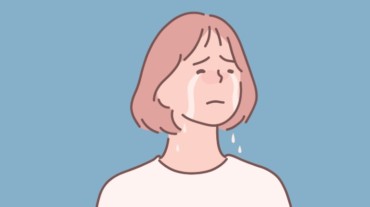
Enough has been broadcasted on new channels, enough has been discussed with friends and peers, and enough has been said on social media—however, not enough has been done to help people cope with it. I am talking about the ever-rising death toll due to covid-19.
If the demise of celebrities like Irrfan Khan, Rishi Kapoor, and Sushant Singh Rajput hit people so hard this year, I could only imagine how much worse it would be to lose someone during this terrible, terrible year. Unfortunately, the imagination turned to reality when I lost my grandfather earlier this month. Facing a hard time coping up with the loss, it struck me that there would be so many people having a hard time just like me and so, almost instinctively, I got in touch with an expert to figure out how to cope with the loss of a loved one during this pandemic.
“Mental health of people has been severely impacted due to this pandemic as it has had a physical social, and economic impact, leaving people vulnerable from all sides,” points out Dr. Preeti Singh, senior consultant, clinical psychology and psychotherapy, Paras Hospitals, Gurugram.
She adds:
Grieving the loss of a loved one has never been easy for anyone. But, this pandemic has taken this distress to another level.
Why, you wonder?
Well, for starters, if you’ve lost a loved one to the novel coronavirus, then perhaps, the uncertainty about how that person contracted the virus in the first place could make you overthink about the situation according to Dr Singh.
Additionally, losing someone to this disease also means that you really weren’t prepared to lose them as they probably weren’t suffering from any chronic, serious diseases, or age-related illness.
“And then, if you both contracted the virus and you managed to survive, survivor’s guilt could haunt you further,” Dr Singh explains.
She mentions yet another painful aspect of losing a loved one during the pandemic: The fact that you wouldn’t have been able to carry out their last rites and bid them the farewell they deserved due to the government restrictions and rules to ensure safety.
All of this, while coping up with the other damages the pandemic has done to our mental health already. From panic and anxiety to chronic stress and depression, many people are reporting mental-health issues due to the ongoing situation.
Select Topics of your interest and let us customize your feed.
PERSONALISE NOWHow, then can you cope with it?
We must understand that in the current scenario, the loss of a loved one can lead to post-traumatic stress disorder (PTSD). This includes symptoms such as getting flashes of the incidents about the deceased while sick, not sleeping well, heightened level of anxiety around any health symptoms, panicking, excessive alcohol consumption, excessive smoking, having suicidal thoughts, and feelings of hopelessness.
Now, definitely if your state of mind is that troubled, only a health professional can help you through it. However, Dr Singh recommends the following strategies that you could adapt to feel slightly better:
1. Try to overcome the guilt
Surely, survivor’s guilt is real. But, you’ve got to know that it doesn’t imply you’ve not done your best to save your loved one.
2. Talk
Talking about your feelings to friends, family, and trusted ones can make you feel lighter as opposed to keeping your feelings bottled up. The more you keep to yourself, the more it’ll eat you up. It’s absolutely okay to cry your heart out to a friend or grieve in front of them. It’ll help you heal.

3. Surround yourself with loved ones
Staying alone or aloof is a bad, bad idea if you’re dealing with the loss of a loved one during this pandemic. Move-in with someone, who can take care of you, feed you well, and simply share things with you. After all, knowing that you still have someone, who cares about you can help you a great deal.
4. Maintain a routine
It might be difficult to get back into a routine if you’re grieving. But you’ve got to understand that life has to go on. Keeping a routine that keeps you busy can keep you distracted. Plus, the sense of accomplishment that you’ll get by completing your tasks will also help you feel better.
5. Indulge in a hobby
Again, a great way to distract yourself from the pain and boost your mood. Do something that feels therapeutic. Cooking, walking, drawing—do whatever makes you feel better.

6. Exercise and eat well
Eating healthy ensures you get proper nutrition, which will help your body recover from the stress and distress you’ve been through. It’ll also make you feel more energetic and help kick away the fatigue that kicks in when you’re grieving or simply lost in your thoughts. Additionally, exercising—as mild as a slow walk for 30 minutes will also help you boost your mood and feel better.
7. Don’t refrain from reaching out for help
If after 6 months of the loss and grieving, you still get PTSD symptoms like flashes, panic attacks , uncontrolled crying , poor sleep , thoughts of self-harm, please connect with a mental health professional.